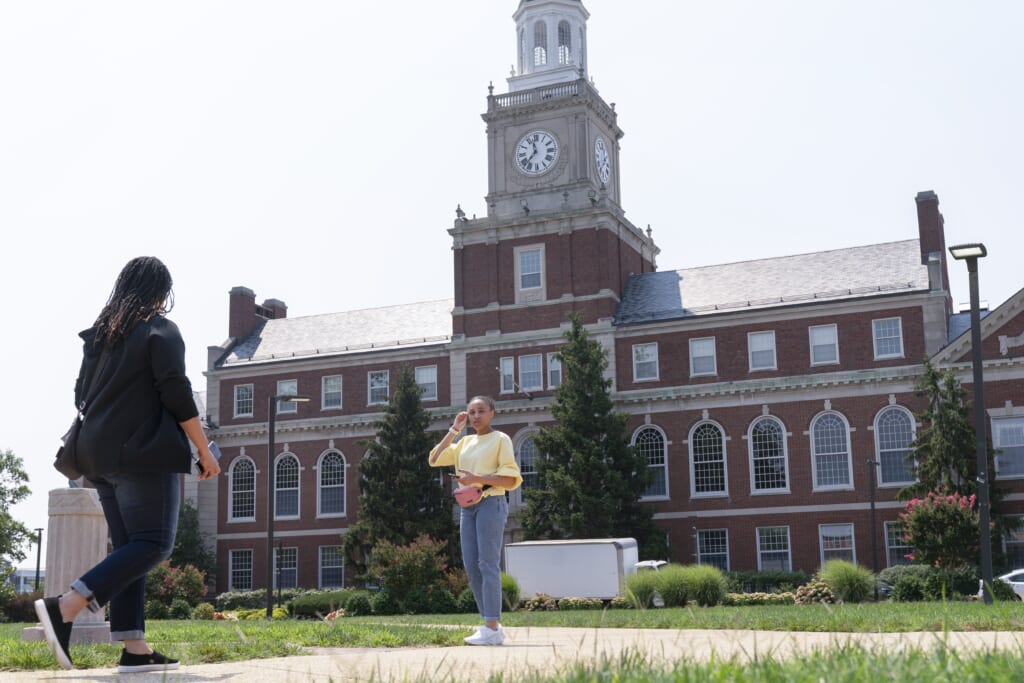Howard University becomes latest HBCU to clear student account balances
More than 20 of the roughly 100 HBCUs across the country have implemented financial relief services for students in response to the COVID-19 pandemic
Howard University announced Friday it will clear unpaid balances for juniors and seniors under increased financial burden due to the COVID-19 pandemic, joining the growing list of HBCUs leading the charge in creating equity for students by alleviating debt.
Students eligible for financial relief are upperclassmen with an expected family contribution of $0 and an outstanding balance for the Spring 2021 semester, according to President Wayne A.I. Frederick.
“Howard University is committed to holistically supporting our students and removing barriers they may encounter on the road to graduation,” Frederick wrote in an email to students. “During the course of the pandemic, we know that many students experienced unforeseen financial hardships that put their plans for pursuing higher education in jeopardy.”

Frederick added that the institution has distributed “over $27 million in direct cash payments, waived fees, emergency housing and meal assistance” and other services to students since the pandemic began in March 2020 to “ensure they could afford their education and living expenses.”
“I am pleased to announce that Howard is continuing these efforts by alleviating more student debt with the intent of increasing the chances for students to complete their degree programs,” he continued.
Howard has already begun distributing funds to eligible students and plans to assist other students who have demonstrated financial need in the weeks to come. Students receive the money via a credit labeled “HU COVID Need Support” issued to their accounts that equals their outstanding balance.
“I continue to be incredibly grateful for the support of the donors who have made this debt alleviation possible,” Frederick said. “I am equally thankful for the perseverance exhibited by these and all students who have persisted in their educational journey despite difficult circumstances.”
Frederick concluded by emphasizing Howard’s dedication to its students and staff, pledging to continue offering financial support and even going so far as to procure funding from other sources if the institution is ever unable to service its community’s needs itself.
“Howard will always devote as much of our resources as we can to minimize the challenges our staff and students encounter,” he said. “And when we lack the resources to provide the level of assistance that we believe is necessary, we continue to identify and secure additional resources that can be used to provide direct support.”
To date, over 20 HBCUs have or are currently offering students some form of financial relief in response to the increased burdens caused by the pandemic, CNN reported. Howard has added its name to a list including Hampton University, Grambling State University, Florida A&M University, Virginia State University, Clark Atlanta University, Virginia Union University, Saint Augustine’s University and more.
Funding for many of these debt relief services comes from the CARES (Coronavirus Aid, Relief, and Economic Security) Act, passed by the Biden Administration in March 2020 designating $2 trillion in stimulus funds for economic recovery from COVID-19 impacts. $31 billion of that money was allotted for schools, and roughly $1 billion for HBCUs and Minority Serving Institutions specifically.
Have you subscribed to theGrio’s “Dear Culture” podcast? Download our newest episodes now!
TheGrio is now on Apple TV, Amazon Fire and Roku. Download theGrio.com today!


